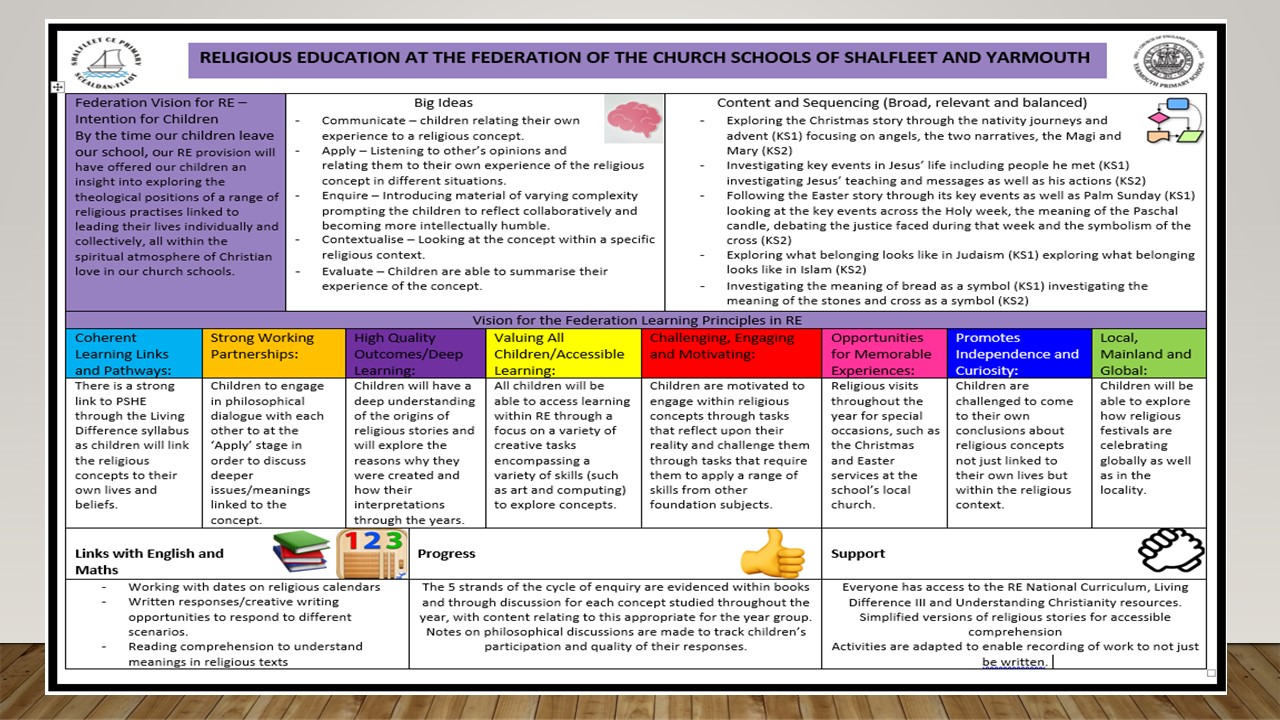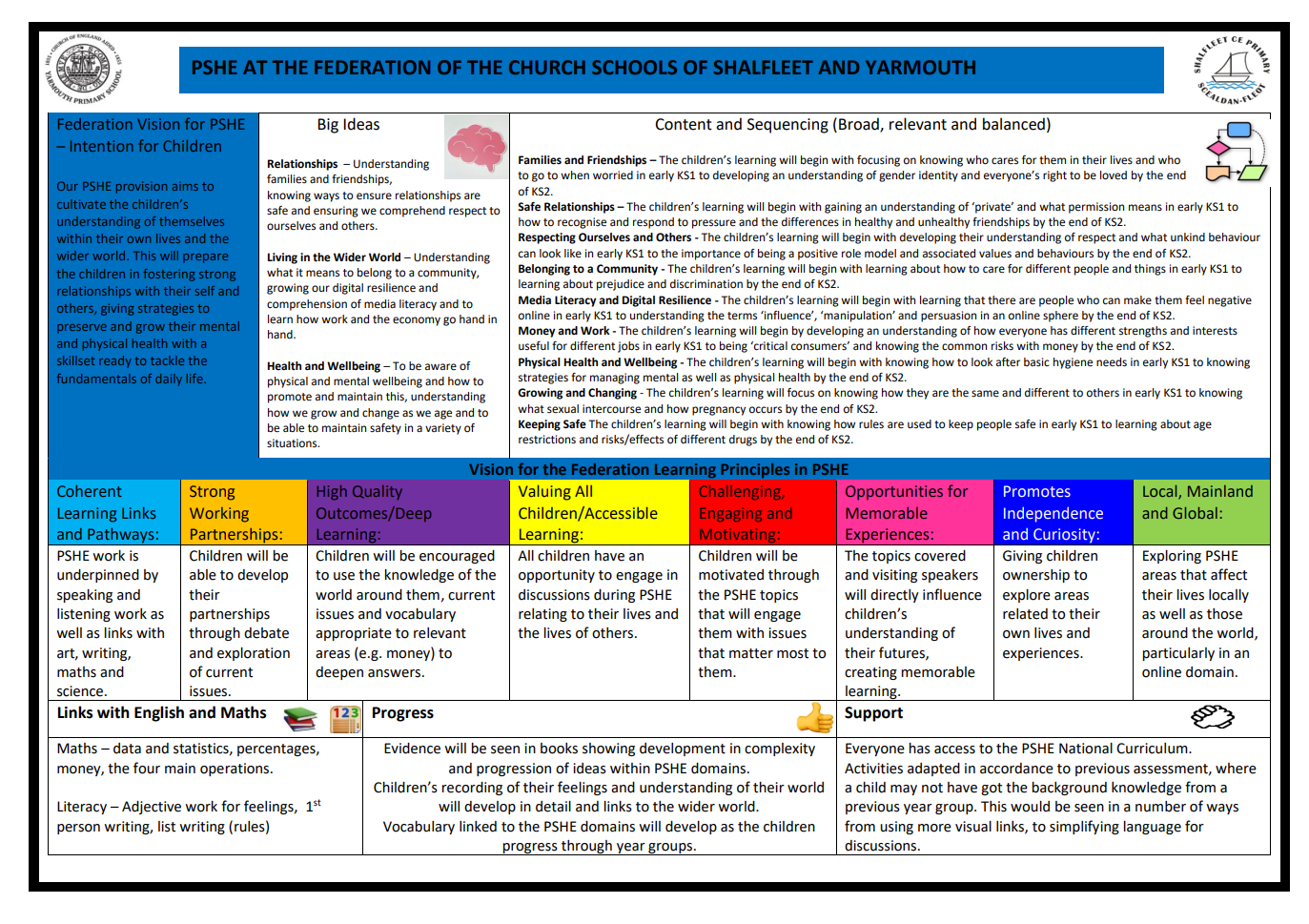curriculum
Religious Education & PSHEReligious Education
National Curriculum Statement
Purpose of study
Promotes the spiritual, moral, cultural, mental and physical development of pupils; and prepares pupils at the school for the opportunities, responsibilities and experiences of later life.
Aims
Pupils should follow a balanced and broadly based curriculum which ‘promotes the spiritual, moral, cultural, social, mental and physical development of pupils and of society, and prepares pupils for the opportunities, responsibilities and experiences of later life’. Learning about and from religions and beliefs, through the distinct knowledge, understanding and skills contained in RE within a broad-based curriculum, is essential to achieving these aims. Exploring the concepts of religion and belief and their roles in the spiritual, moral and cultural lives of people in a diverse society helps individuals develop moral awareness and social understanding.
PLEASE NOTE THAT PARENTS/CARERS HAVE THE RIGHT TO WITHDRAW THEIR CHILD FROM ALL OR PART OF RE.
Our Intent
By the time our children leave our school, our RE provision will have offered our children an insight into exploring the theological positions of a range of religious practises linked to leading their lives individually and collectively, all within the spiritual atmosphere of Christian love in our church schools.
Living Difference IV RE Syllabus
Living Difference IV is the agreed Syllabus for Hampshire, Portsmouth, Southampton & the Isle of Wight – please click on the link for a copy of the Syllabus – Living Difference IV
RE entitlement is:
EYFS & KS1 36 hours taught RE from the Living Difference IV syllabus
KS2 45 hours taught RE from the Living Difference IV syllabus.
PSHE
National Curriculum Statement
Purpose of study
Personal, social, health and economic (PSHE) education is an important and necessary part of all pupils’ education. We expect schools to use their PSHE education programme to equip pupils with a sound understanding of risk and with the knowledge and skills necessary to make safe and informed decisions.
Our Intent
By the time our children leave our school, our Personal, Social and Healthy Education provision aims to have prepared them with the knowledge and equipped them with tools needed as they progress onto Secondary school and beyond. This will involve discussing and covering essential topics such as drug education, financial education, sex and relationship education (SRE) and the importance of physical activity and diet for a healthy lifestyle, tailored to the children’s year group and understanding. These will be taught in a safe, understanding environment where questions will be encouraged and answered sensitively and thoroughly.
Click to download –
Emotional Development Flow Chart
Promoting SMSC Wheel Evaluation


Monitoring & Evaluating
Impact of the implementation of the RE & PSHE curriculum is measured in a variety of ways.
These include:
Pupil Conferencing
Work Scrutiny – alongside teacher’s planning
Assessment data
Learning walks
Learning environment
